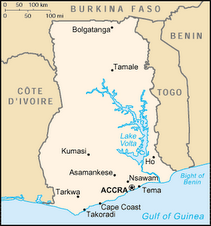The
poverty of our patients and the lack of the hospital’s ability to
provide necessary drugs and supplies without the patients first paying
for these things are big factors in providing treatment. Because the
sick and their families cannot afford medical care, they delay in coming
to the hospital. Due to presenting at such a late stage in their
illness, half of those admitted die within twenty-four hours. In rural
Africa, many pregnant women deliver at home, often with complications.
Two-thirds of children die at home without ever coming to the hospital.
Recently,
one elderly woman developed a dental infection, which spread to her
neck and eventually drained out from her neck. Fortunately, she did not
die while she treated herself for six months at home and finally came in
when she could not swallow any food.
Another
patient with a fractured mandible, whom we needed to refer to another
hospital, could not pay for the eight-dollar bus ticket until we gave
him money for transportation.
Skin
grafts were done on a woman who could not afford a plastic surgeon and
would otherwise have gone home with an exposed wound.Our ear, nose and throat department submitted a paper on malaria being a cause of deafness in northern Ghana.

